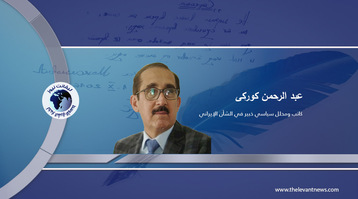-
Better to live, not die for your country

During the Suez War of 1956, a young Syrian navy officer named Jules Jammal volunteered to fight with the Egyptian Army. He blew himself against a French vessel and died instantly, becoming an overnight legend in both Egypt and Syria. Jammal was Christian not Muslim, dying for Egypt not Syria. At the time, nobody described his act as “amaliya istishadiyah,” coming from the word shahada (martyrdom) that is mentioned explicitly in the Holy Quran. Rather, it was called a “fedayaii operation,” from the Arabic word fedayeen, which has since entered the English dictionary and means “guerrilla fighters” linked specifically to attacks against Israel.
That was the secular term by which Yasser Arafat’s operations were known throughout his military career, which started in the mid-1960s and lasted until signing of the Oslo Peace Accords in 1993. Nobody ever described Arafat’s men as carrying out “amaliya istishadiyah,” or what was subsequently called by the West and by Israel as a “suicide operation.” That term was only invented by Hamas during the first intifada in 1987 and then popularized throughout the second, which started in 2001. Prior to Hamas, neither the resistance nor any of its operations were confined to Sunni Muslims only, and Palestinians were very proud of the Christian components in their revolution. In fact, Christian revolutionaries like George Habash and Wadih Haddad did more for the Palestinian Cause than Ismail Haniya and Khaled Meshaal, who hijacked the Palestinian resistance, leaving no room for both non-Muslims and non-members of Hamas.
Suicide bombing, as a phenomenon, first became a public phenomenon when the Japanese kamikaze pilots crashed their explosive aircraft into US military targets in the Pacific at Pearl Harbor in World War II. The first time the term "suicide bombing" was used was in The New York Times on August 10, 1940 in reference to German tactics in World War II. It started applying to the Japanese by 1942. It disappeared from the 1940s until the early 1980s, resurfacing in the Lebanese Civil War.
By definition, a martyr is “a person who is put to death or endures suffering because of a belief, principle or cause. The death of a martyr or the value attributed to it is called martyrdom.” The first martyr in Islam was the old woman Sumayyah bint Khayyat, the first Muslim to die at the hands of the polytheists of Mecca. Hamas and the Brotherhood, and their version of Islam, is simply not Islam because it justifies the killing of fellow Muslims. Their definition of martyrdom is distorted, perverted, and ultimately wrong. Their martyrs kill indiscriminately, striking at children, women, elderly—and fellow Muslims. That is a red line the Prophet Mohammad would never allow. In the Holy Quran, there are verses calling on Muslims to take up arms against aggressors, but not a single verse says that Muslims should kill fellow Muslims in order to destabilize governments. There is even a clear verse that, if read correctly, would prevent Muslims from blowing themselves up against civilian and fellow Muslim targets. In the Holy Qoran (verse 6:151) it reads, "And take not life, which Allah has made sacred, except by way of justice."
To terrorism-apologists, a bomber has not committed suicide, an act usually associated with cowardice and despair, but rather, committed a brave deed of self-sacrifice that qualifies him or her for entrance into heaven in the afterlife. It actually depends first and foremost on who the targeted enemy is, whether it’s a fellow countryman, or a foreign occupier. At some point, however, when too much blood is spilled in the Middle East, the differences between bombings (and their targets) becomes blurred to the point of indistinction. All the world sees in them are scenes of senseless gore, blood and anguish raising the eternal question: "Is it better to live or die for one's country?"
Two examples from Palestine
Let us take two examples from modern Levantine history.
One is Wafa Idris who was the first woman to blow herself up in an attack against the Israelis in Jerusalem on January 28, 2002. She was 28 years old, divorced and working with the Palestinian Red Crescent. She justified her attack as one against her declared enemy. She did not detonate a bomb against fellow Palestinians. She became a symbol for many others, most notably Ayat al-Akhras, an 18-year old girl who on March 29, 2002 detonated explosives at a supermarket in Jerusalem, killing two Israelis, one a 17-year-old Israeli girl. Her age, gender and the fact that one of the victims was her age caused a loud outcry in the international community, with people asking why is it that these two innocent teenagers had to suffer, and die, for such a bloody conflict that they had inherited from their fathers and grandfathers?
Akhras had been an A-student who wanted to go to college and study journalism. She was engaged to be married in July 2002. US President George W Bush talked about the affair, saying: "When an 18-year-old Palestinian girl is induced to blow herself up and in the process kills a 17-year-old Israeli girl, the future itself is dying, the future of the Palestinian people and the future of the Israeli people." Both attacks, of course, were glorified by Hamas and the Muslim Brotherhood.
Death by suicide
Since 2003, thousands have died by suicide attacks in Iraq, especially under ISIS rule in 2017-2017. Most of them were Iraqi citizens who blew themselves in crowded areas, killing fellow Iraqi citizens. The most recent of these events was a twin suicide attack at a Baghdad market earlier this year, which killed at least 32 Iraqis and wounded over 100. In March 2006, an Israeli expert on terrorism, named Reuven Paz, conducted research on jihadi operations in Iraq and concluded that contrary to common belief most of the suicide bombers were not young, neglected, poor, desperate, and deprived souls. They were family people, married, educated, living in decent homes and working in decent jobs. This was the same with the hijackers of September 11. Many, Paz said, were from wealthy or middle-class families.
This idea was backed by the anthropologist, Scott Atran, and Alberto Abadie, a professor of public policy at Harvard University. Abadie published a paper on the subject, saying that very seldom are the suicide bombers from poor families. Rather, he said violence and terrorism is a direct result of political instability and lack of freedoms in the bomber's country. Very rarely have the bombers been motivated by despair. In fact, it is hope that motivates them—hope that they can destroy the enemy and, in the process, achieve emancipation for their cause.
Learning from the Bahaiis
The Bahaii faith, which came after Islam and is therefore, widely considered as an unorthodox faith in the Muslim world, decrees that a martyr is one who sacrifices his or her life in the service of humanity in the name of God. Abdul-Baha, the son of the faith’s founder Bahaullah, said that the “truest form of martyrdom is life-long service to society and mankind,” claiming that “life should be preserved—not wasted because it was given by God. And nobody but God is entitled to take it away.”
The Bahaiis champion protecting one’s life, claiming that it is better to live than die for one’s country. That may sound unorthodox and ultimately wrong to millions of believers in Islam. It is true that at certain junctures of a nation’s history, sacrificing life, rather than preserving it, are permissible, even necessary, for a nation’s re-birth. That applied to all peoples under occupation throughout history. But this is not the eternal trend. It is just a moment in time that eventually, will pass, even if it takes another 100 years. The real service to the nation would be to live, produce, learn, love, have children, and give to a nation’s psychology, well-being, and development.
All innocent life is precious. People should have all lived, not died for their countries.
by: Sami Moubayed
You May Also Like
Popular Posts
Caricature
Syrians' concerns now
- December 10, 2024
Syrians' concerns now #Syria
#Bashar_al-Assad
#Liberation_of_Syria
#Syrians
#Future_of_Syria
#Levant_News

opinion
Report
ads
Newsletter
Subscribe to our mailing list to get the new updates!



















